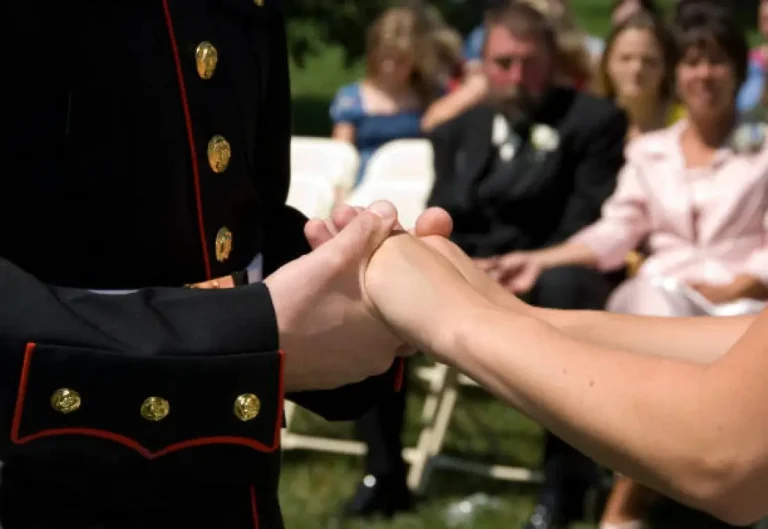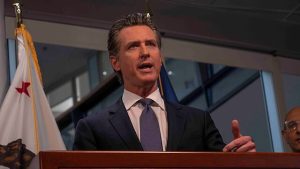The Phone Call That Shattered Everything: When a Dream Vacation Became a Marriage’s Final Chapter
Four words from the middle of the Atlantic Ocean would forever change Sandra’s understanding of love, loss, and the devastating cost of choosing yourself over family in the darkest hour
The Moment Everything Changed
The crystal-clear waters of the Caribbean stretched endlessly before Sandra Martinez as she stood on the deck of the luxury cruise ship, her phone trembling in her hand. The call she had been dreading – and somehow expecting – had finally come. Her husband’s voice, usually warm and reassuring after eleven years of marriage, now carried a coldness that cut through the tropical breeze like a blade.
“You are not coming back to this house ever again.”
Six days earlier, Sandra had made a decision that would define the rest of her life. When faced with choosing between her stepson’s funeral and the dream cruise she and her husband had sacrificed for over three years to afford, she chose herself. Now, floating in paradise while her marriage crumbled via satellite phone, she was learning the true price of that choice.
The story that brought her to this moment reveals the complex intersection of grief, guilt, and self-preservation that defines modern relationships – and asks the question that has divided therapists, ethicists, and ordinary people across the internet: When tragedy strikes, how much of yourself are you obligated to sacrifice for family?
The Dream That Became a Nightmare
Sandra’s story begins like countless others – with hope, love, and carefully laid plans. At 42, she had found what seemed like her second chance at happiness with David Martinez, a divorced father who brought stability and partnership to her previously chaotic life. Their blended family included David’s teenage son Marcus, a bright 15-year-old who had gradually come to accept Sandra’s presence in his father’s life.
For eleven years, Sandra and David had lived modestly, pouring every spare dollar into savings for what they called their “someday trip” – a luxury Caribbean cruise that represented everything they had never been able to afford. Both had come from working-class backgrounds where vacations meant camping trips and staycations. The cruise represented not just relaxation, but validation that their hard work and sacrifice had finally paid off.
“We would look at the brochures every few months,” Sandra recalls, “pointing out the restaurants we wanted to try, the excursions we’d book, the balcony room we’d splurged on. It became more than a vacation – it was proof that we had made it.”
The financial sacrifice was real and measurable. Over three years, they had foregone dining out, delayed home repairs, driven older cars, and skipped family gatherings that required travel expenses. Sandra had worked overtime shifts at her administrative job while David picked up weekend contracting work. Every decision was filtered through the question: “Will this help us get closer to the cruise?”
When Tragedy Struck Without Warning
On a Tuesday afternoon in March, Sandra’s carefully constructed world imploded with a single phone call. Marcus, driving home from basketball practice, had been killed instantly when a drunk driver ran a red light. The teenager who had just started calling her “Mom Sandra” was gone, and David’s world – their world – was shattered.
The next 72 hours passed in a blur of funeral arrangements, family notifications, and overwhelming grief. David seemed to age a decade in those three days, moving through the motions of burial planning while clearly struggling to accept his new reality. Sandra found herself simultaneously grieving for the boy she had grown to love and for the husband whose pain was almost unbearable to witness.
Then came the realization that would change everything: their cruise departure was scheduled for Saturday morning, just four days after Marcus’s death.
The timing was cruel in its precision. The funeral was set for Thursday, the cruise ship would sail on Saturday, and the non-refundable tickets represented three years of sacrifice that could never be recovered. Sandra faced a choice that no marriage counselor’s handbook had prepared her for: honor her stepson’s memory and her husband’s grief, or honor the commitment she had made to herself and their shared dream.
The Decision That Divided a Marriage
What happened next depends entirely on perspective – and has sparked passionate debate among relationship experts, ethicists, and ordinary people trying to understand where love ends and self-preservation begins.
From Sandra’s viewpoint, the decision was agonizing but logical. The money was gone regardless of whether she traveled. Marcus was already buried. David would be surrounded by his family and friends for support. The cruise represented not just a vacation but a symbol of everything she had worked for and sacrificed over the past three years of her life.
“I had given up so much for this trip,” Sandra explains. “Overtime hours, family events, even small pleasures like buying new clothes or eating out with friends. This wasn’t just about a vacation – it was about not letting three years of sacrifice mean nothing.”
From David’s perspective, Sandra’s decision represented an unforgivable betrayal at the moment when he needed her most. His son – her stepson – had just died, and instead of staying to comfort her grieving husband, she chose a luxury cruise. The symbolism was inescapable: when forced to choose between family and personal desires, Sandra chose herself.
The conversation that sealed their fate was brief and devastating. When Sandra announced her intention to take the cruise alone, David simply stared at her. No arguments, no pleading, no attempts at compromise – just silence that spoke volumes about the magnitude of what had just shifted between them.
“I kept waiting for him to say something,” Sandra recalls. “To fight for the trip, or to fight against it, or to just fight with me about anything. The silence was worse than anger. It was like he was already deciding who I was based on this one choice.”
The Cruise That Felt Like Exile
The luxury suite that had represented their shared dreams became Sandra’s gilded prison. Every amenity they had fantasized about – the balcony overlooking endless ocean, the gourmet dining, the spa treatments – felt hollow without David beside her. Surrounded by couples celebrating anniversaries and families on vacation, Sandra was utterly alone with her choice.
The other passengers, unaware of her circumstances, included her in activities and conversations that felt increasingly surreal. How do you explain that you’re enjoying the buffet while your stepson’s funeral reception is probably ending back home? How do you participate in couples’ dancing when your husband is likely meeting with divorce attorneys?
“Every beautiful sunset felt like a betrayal,” Sandra reflects. “Every moment of enjoyment was tainted by guilt, but I couldn’t bring myself to regret the decision. I had worked too hard for this, sacrificed too much. But I was learning that being right doesn’t always mean being happy.”
The phone call that ended her marriage came on day three of the seven-day cruise. David’s voice was calm, controlled, and final. Not only was she not welcome back in their home, but he had already begun the practical steps of ending their marriage. Her belongings were packed and waiting on the lawn. Her mother had been contacted to collect them. Divorce papers were being prepared.
The Aftermath and Its Revelations
Returning from paradise to find your life in garbage bags creates a unique form of trauma. Sandra spent her first night back staying with her sister, surrounded by the physical remnants of an eleven-year relationship that had ended via satellite phone from international waters.
The divorce proceedings that followed were swift and unforgiving. David’s position was unambiguous: Sandra had revealed her true character in their darkest hour, choosing personal pleasure over family loyalty. There would be no reconciliation, no counseling, no opportunity to explain or apologize her way back into the marriage.
“He said he couldn’t stay married to someone who would leave right after his son’s death,” Sandra recalls. “At first, I thought it was grief talking. But he meant every word. In his mind, I had failed the ultimate test of who I was as a person.”
The social fallout was equally devastating. Friends and extended family members were forced to choose sides in a conflict that defied easy moral categorization. Some supported Sandra’s right to honor her own needs and the investment she had made in the trip. Others viewed her choice as fundamentally selfish and incompatible with marriage vows that include “in sickness and in health.”
The Professional Perspective on Impossible Choices
Dr. Rebecca Chen, a licensed marriage and family therapist specializing in blended family dynamics, describes Sandra’s situation as a “perfect storm of competing loyalties and unresolvable conflicts.” The case has become a teaching example in her practice for couples struggling with similar tensions between individual needs and family obligations.
“There’s no objectively right answer here,” Dr. Chen explains. “Sandra had legitimate reasons for her choice – significant financial investment, years of sacrifice, and the reality that her presence wouldn’t bring Marcus back. David had equally legitimate reasons for his response – the need for spousal support during devastating grief and reasonable expectations about marriage priorities during crisis.”
The case highlights what relationship experts call “values misalignment” – situations where partners discover their fundamental beliefs about love, loyalty, and responsibility are incompatible. These discoveries often remain hidden until crisis forces couples to reveal their true priorities.
“Many marriages can survive disagreements about money, parenting, or even infidelity,” notes Dr. Chen. “But when partners discover they have fundamentally different definitions of what it means to be a family, reconciliation becomes nearly impossible.”
The Economics of Love and Loss
The financial dimension of Sandra’s story adds complexity that many critics overlook. The cruise represented not just $8,000 in immediate costs, but three years of foregone pleasures and delayed gratification. From an economic perspective, Sandra’s decision was rational – the money was already spent, the grief wouldn’t be lessened by her presence, and the opportunity for recovery was permanent.
Financial therapist Michael Rodriguez, who specializes in money-related relationship conflicts, notes that Sandra’s situation reflects broader tensions in modern marriages about individual versus collective financial decisions.
“When couples sacrifice for shared goals over extended periods, those goals become more than just purchases – they become symbols of the relationship’s success and proof that sacrifices were meaningful,” Rodriguez explains. “Sandra wasn’t just choosing a vacation over a funeral; she was choosing to honor years of shared sacrifice over an obligation that wouldn’t be lessened by her presence.”
However, Rodriguez also acknowledges the emotional mathematics that David was calculating: “In David’s mind, Sandra’s choice proved that their relationship was transactional rather than transformational. When forced to choose between money and marriage, he perceived that she chose money.”
The Ethics of Self-Care During Family Crisis
Ethicist Dr. Sarah Williams of Georgetown University’s Center for Applied Ethics has used Sandra’s case in discussions about moral obligations during family emergencies. The case raises fundamental questions about how much individuals are required to sacrifice their own needs for family members, particularly in blended family situations where relationships may be less established.
“The traditional expectation is that spouses sacrifice personal desires for family needs during crisis,” Dr. Williams notes. “But Sandra’s situation challenges that assumption by asking whether the sacrifice would actually benefit anyone or just create additional loss.”
The distinction between biological and step-relationships adds another layer of ethical complexity. Would Sandra’s obligation have been different if Marcus had been her biological son? Does the length and quality of their relationship affect her moral duties during his death?
“These questions don’t have universal answers,” Dr. Williams explains. “They depend on individual values, cultural backgrounds, and personal definitions of family obligation. Sandra’s choice wasn’t objectively wrong, but it was incompatible with David’s values system.”
The Long-Term Consequences of Choosing Yourself
Eighteen months after the cruise, Sandra remains single and continues to question her decision. The marriage she lost hasn’t been replaced, the friendships that ended haven’t been restored, and the family she gained through David is permanently closed to her. The cruise memories, once symbols of achievement and partnership, now represent the most expensive mistake of her life.
“I still believe I had the right to take that trip,” Sandra reflects. “But having the right to do something doesn’t mean it was the right thing to do. I chose to prioritize myself over my family when they needed me most. The cost of that choice was everything else I cared about.”
Career counselor and life coach Jennifer Adams, who has worked with Sandra during her post-divorce adjustment, notes that the experience has fundamentally changed how Sandra approaches relationships and decision-making.
“Sandra learned that being technically correct isn’t the same as being relationally wise,” Adams explains. “She’s had to rebuild her understanding of what it means to be in partnership with someone, and what kinds of sacrifices love requires.”
The experience has also affected Sandra’s approach to future relationships. Dating at 44 as someone whose previous marriage ended because she chose a cruise over a funeral creates unique challenges in building trust and demonstrating commitment to potential partners.
Lessons for Modern Relationships
Sandra’s story offers several crucial insights for couples navigating the complex terrain of modern marriage, particularly in blended families where loyalties and obligations may be less clearly defined:
The Importance of Values Alignment: Couples must discuss not just their goals and dreams, but their fundamental beliefs about family obligations, personal sacrifice, and the boundaries of individual versus collective needs. These discussions are particularly crucial in blended families where step-relationships create additional complexity.
Crisis Reveals Character: How partners respond during family emergencies often reveals deeper truths about their values and priorities than years of normal interaction. Couples should consider having explicit conversations about expectations during potential crises before they occur.
The Economics of Emotional Labor: Financial sacrifices for shared goals create emotional investments that can conflict with family obligations. Couples need frameworks for handling situations where previous commitments clash with immediate needs.
Communication During Crisis: Sandra and David’s failure to have extended discussions about their options and feelings contributed to the finality of their break. Even in grief, couples need tools for working through impossible choices together.
The Question That Remains
Sandra’s story ultimately asks a question that has no universal answer: When faced with choosing between honoring previous commitments to yourself and supporting family members through crisis, which choice reflects better character?
The responses reveal as much about the responder’s values as about Sandra’s decision. Those who support her choice emphasize personal responsibility, the importance of honoring commitments, and the reality that her presence wouldn’t have changed the tragedy’s outcome. Those who condemn her decision focus on marriage as requiring sacrifice, the importance of supporting grieving partners, and the symbolism of choosing pleasure over family support.
Perhaps the most honest answer is that Sandra’s choice wasn’t objectively right or wrong, but it was incompatible with the marriage she thought she had. Her decision to prioritize her individual needs over collective family grief revealed a values gap that made their relationship unsustainable.
Conclusion: The Price of Self-Preservation
Today, Sandra lives alone in a one-bedroom apartment, working the same administrative job but without the shared dreams that once made overtime hours meaningful. The cruise photos remain in a box in her closet – too painful to display but too expensive to throw away.
When asked if she would make the same choice again, Sandra’s answer reveals the complexity of her ongoing struggle with the decision: “I don’t know. The logical part of me says yes – Marcus was already gone, the money was already spent, and my presence wouldn’t have brought him back. But the part of me that lost everything I cared about says I should have stayed. Maybe some things are more important than being right.”
Her story serves as a cautionary tale about the hidden costs of self-preservation and the ways that individual choices can destroy the very relationships that make life meaningful. Sometimes choosing yourself means losing everything else – and the question of whether that trade-off is worth it can only be answered by the person making the choice.
In the end, Sandra got her dream cruise, but learned that some dreams come with prices too high to pay. The crystal waters of the Caribbean were beautiful, but they couldn’t wash away the regret that followed her home, or restore the family that chose grief over her return ticket to paradise.

Emily Johnson is a critically acclaimed essayist and novelist known for her thought-provoking works centered on feminism, women’s rights, and modern relationships. Born and raised in Portland, Oregon, Emily grew up with a deep love of books, often spending her afternoons at her local library. She went on to study literature and gender studies at UCLA, where she became deeply involved in activism and began publishing essays in campus journals. Her debut essay collection, Voices Unbound, struck a chord with readers nationwide for its fearless exploration of gender dynamics, identity, and the challenges faced by women in contemporary society. Emily later transitioned into fiction, writing novels that balance compelling storytelling with social commentary. Her protagonists are often strong, multidimensional women navigating love, ambition, and the struggles of everyday life, making her a favorite among readers who crave authentic, relatable narratives. Critics praise her ability to merge personal intimacy with universal themes. Off the page, Emily is an advocate for women in publishing, leading workshops that encourage young female writers to embrace their voices. She lives in Seattle with her partner and two rescue cats, where she continues to write, teach, and inspire a new generation of storytellers.









